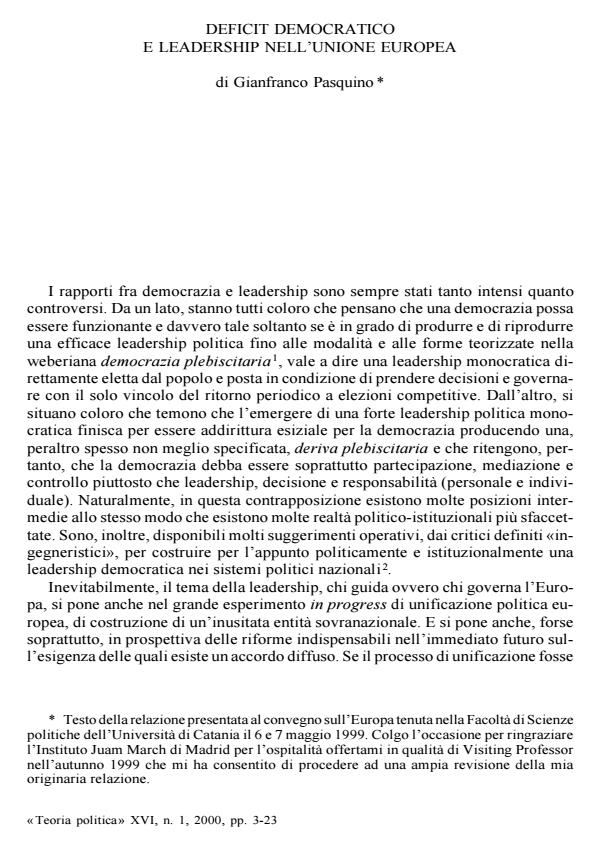Deficit democratico e leadership nell'Unione europea
Titolo Rivista TEORIA POLITICA
Autori/Curatori Gianfranco Pasquino
Anno di pubblicazione 1 Fascicolo 2000/1
Lingua Italiano Numero pagine 21 P. Dimensione file 56 KB
DOI
Il DOI è il codice a barre della proprietà intellettuale: per saperne di più
clicca qui
Qui sotto puoi vedere in anteprima la prima pagina di questo articolo.
Se questo articolo ti interessa, lo puoi acquistare (e scaricare in formato pdf) seguendo le facili indicazioni per acquistare il download credit. Acquista Download Credits per scaricare questo Articolo in formato PDF

FrancoAngeli è membro della Publishers International Linking Association, Inc (PILA), associazione indipendente e non profit per facilitare (attraverso i servizi tecnologici implementati da CrossRef.org) l’accesso degli studiosi ai contenuti digitali nelle pubblicazioni professionali e scientifiche.
There is a close relationship between democratic deficit and the construction of political leadership in the European Union. This article argues that the problem of democratic deficit derives not only from the type of institutions of the European Union, with political power firmly in the hands of the European Council and therefore of the governments of the Member States, but from the inability/unwillingness of political parties to run truly European campaigns for the election of the European Parliament. If the premises are correct, then it would be forlorn to look for a solution to the democratic deficit in a stronger role for the European Parliament and, more precisely, in a sort of (neo)parliamentary model implying a subordination of the European Commission to the European Parliament. On the contrary, the solution that promises both to reduce the democratic deficit, that is to encourage and increase the participation and the influence of European citizens, and to create an authoritative democratic leadership has to be found in a quasi-presidential model. The President of the Commission, once indicated as a candidate by at least one party in a number of States or in all of them, will be elected directly by the European voters. This solution, that by no means eliminates the need for additional institutional reforms, carries two advantages. First, it strengthens the European democratic leadership while automatically reducing the democratic deficit. Second, it will stimulate European parties to revitalize themselves and to reach out to their voters.
Gianfranco Pasquino, Deficit democratico e leadership nell'Unione europea in "TEORIA POLITICA" 1/2000, pp , DOI: